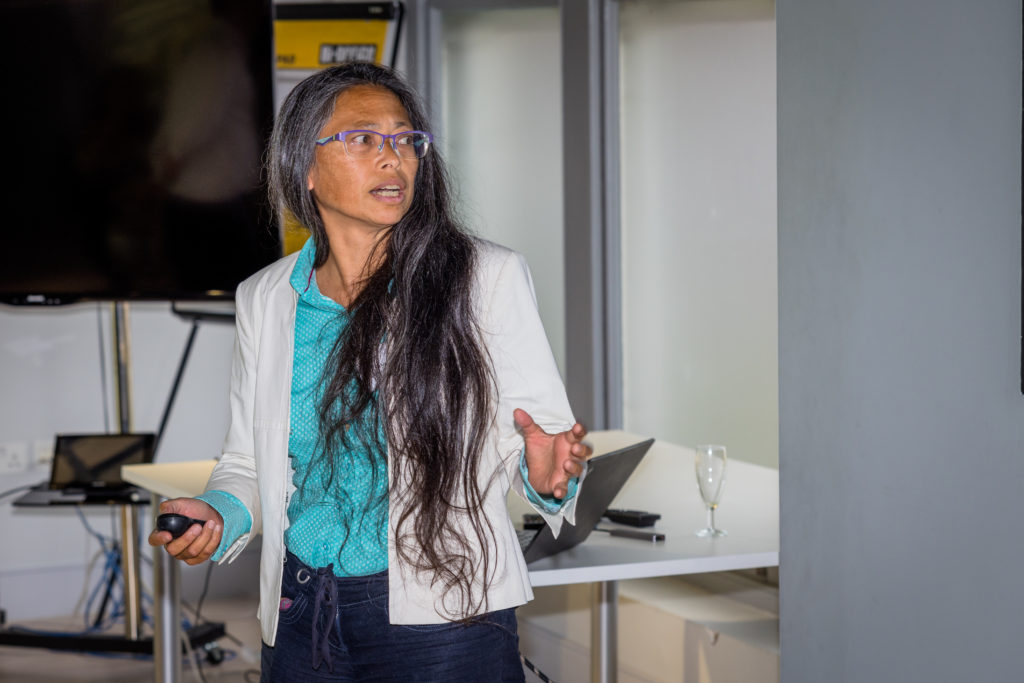Interview Series #5
NOMAD: Revolutionizing Digestate Management and Enabling Circular Bio-Economies
Rokiah Yaman is the managing director of LEAP micro AD, based in the UK, and coordinates the LEAP demonstration sites, focusing on various aspects such as fundraising, planning activities, infrastructure management, and operations logistics. She has a strong interest in promoting micro AD (anaerobic digestion) technology and circular thinking in public spaces to give people the opportunity to experience and understand the benefits of the concept firsthand.

Q: What is the NOMAD project about?
NOMAD is designed to support anaerobic digestion (AD) plant owners in managing surplus digestate and improving its biosecurity. Digestate can become an issue for AD plants of all scales where there is not enough space for application, as both storage and disposal are expensive. NOMAD’s approach is to extract nutrients into a compact form, reduce antibiotics where they are present and recover grey water for reuse on-site.
The process involves several steps, some established processes, while others are in development. The key challenges include minimising membrane fouling, achieving cost effectiveness, and optimising the sequence of processes to achieve our objectives.
Q: What can you tell us about the truck?
The concept of mobilising a complex set of processes including volume reduction, nutrient recovery and biosecurity to achieve NOMAD’s various objectives is unique. Most digestate management approaches focus on a more limited set of targets. It has the potential to play an enabling role in enabling new markets, where AD may have previously been economically or logistically unfeasible.
Q: Who will benefit from the NOMAD truck?
A viable digestate management solution could potentially transform the business case for AD plants currently paying high disposal costs. Once tested and validated, NOMAD can be adapted to serve AD plants at several different scales – from micro to large systems. For farmers and food production enterprises, recovering fertilizer compounds into more compact, stable forms will make application easier and cheaper, with more controlled environmental impacts.
Q: How will this solution impact future soil health?
Any fertilizer, whether synthetic or organically sourced, can be used in a way that harms the environment if incorrectly applied by causing eutrophication, where nutrients overload waterways and other bodies of water to cause algal blooms, dead zones and kill fish. Using fertiliser without replenishing soil organic matter also depletes soil fertility over time, compromising soil structure and its ability to retain water. NOMAD’s by-products include both fertilizer compounds and soil amenders, which when used together, will simultaneously boost crop growth and improve soil structure and ecology.
Q: How big is the problem of antibiotic residues in agriculture?
The build-up of antibiotic residues in the food chain leads to the emergence and spread of microorganisms which are resistant to them. Known as antimicrobial resistance, this effect means that current antibiotics become ineffective, posing a serious risk to public health.
NOMAD will test off-the shelf technology in a new context to remove antibiotic compounds from digestate – one of the more experimental elements of the project. Part of the demonstration trials will involve calibrating this and other processes using digestates derived from a range of feedstocks as well as modifying the sequence of processes to achieve the best results.
Q: Which of NOMAD's goals is important to you?
I’m keen to see how NOMAD could unlock the market for urban micro-scale AD, where the technology could serve networks of AD plants across a wide range of applications, from university campuses to social housing estates. Achieving this would help establish circular bio-economies on the ground and generate significant green growth opportunities to improve local economic resilience, with increased social benefits where AD is linked with on-site food production for local consumption.